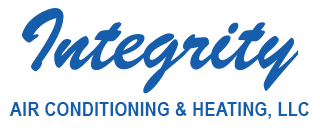
To avoid rising energy costs and work toward a more sustainable life, many homeowners are looking for ways to enjoy the same standards of comfort while reducing utility bills. Included in the Inflation Reduction Act, federal tax credits are available for high efficiency HVAC equipment. These credits offer big savings, as long as the homeowners work with qualifying equipment and submit the appropriate form.
If you’re concerned the application process might be tedious, we can share something that will help! Integrity AC & Heating LLC hopes this guide will give you everything you need to earn these HVAC tax credits in 2024. Here’s how.
Understanding the HVAC Tax Credits
These valuable tax credits for boosting your home’s energy efficiency are just one portion of the recent Inflation Reduction Act. With the higher cost of energy making an impact, helping more homeowners upgrade their equipment is always beneficial. The main intention of these credits is to reduce the cost of installing high efficiency upgrades. Of particular importance are the Residential Clean Energy Credit and the Energy Efficiency Home Improvement Credit.
But keep in mind, to earn any of the credits, you’ll need a completed IRS Form 5695. Additionally, this form has to be submitted for the same tax year any upgrades were installed, not purchased.
Energy Efficiency Home Improvement Credit
Through 2032, the Energy Efficiency Home Improvement credit empowers homeowners by offsetting up to $3,200 every year for making your home more energy-efficient. This amounts to 30% of the total project’s cost. You should be aware that in order to receive the maximum amount, it involves making different investments. For example, you’ll get up to $2,000 for installing a higher efficiency heat pump. This can be paired with an additional $1,200 in credits for more projects in the tax year.
While new heat pump installation projects are a popular option for the tax credit, high-efficiency furnaces, air conditioners, boilers, and other HVAC systems are still eligible for this tax credit. You’ll need to confirm the make and model’s energy efficiency rating is high enough for eligibility.
Exploring the Residential Clean Energy Credit
The Residential Clean Energy Credit provides 30% savings on a variety of residential clean energy equipment upgrades. Eligibility is restricted to homeowners looking for new clean energy solutions for their home. While the Home Improvement Credit works primarily with utilities and HVAC systems, this credit is instead designed around renewable energy sources like solar and wind energy.
Some provisions of the tax credit include requiring the installation project to be finished between 2022 and 2032. But at the same time, homeowners can carry forward excess credit to offset future tax obligations. This is a great way to soften the entry into investing in clean energy.
Additional Qualifications for Energy Tax Credits
Because HVAC systems are one of the biggest expenses on your energy bill, these tax credits can guide you to the most energy-efficient options. But home energy efficiency can be improved in many other ways. Apart from the previously listed HVAC upgrades, {you could also choose|other eligible items include|you also have access to:
- Energy-saving heat pump water heating systems
- Electrical panel upgrades
- New electrical wiring
- Enhancements to insulation, air sealing, and ventilation
- High-efficiency electric stoves, cooktops, ranges or ovens
- Efficient heat pump clothes drying solutions
- High-efficiency water boilers
Like the HVAC systems, you’ll need to verify that your chosen products meet the eligible energy efficiency ratings.
Three Tips for Making the Most of 2024 HVAC Tax Credits
While any of these upgrades can boost home energy efficiency, a little planning will ensure more long-term benefits. Get the most from your HVAC tax credits with these three tips:
- Conduct a home energy audit to identify impactful upgrades. Rely on professional HVAC assessments for crucial advice.
- Improve your home's thermal efficiency with better windows and doors.
- Explore potential rebates from utility companies for clean energy upgrades. Renewable sources like solar, wind, and geothermal contribute to community power grid sustainability.
- Don’t forget financing options from local service companies, which can help reduce costs even more.
Integrity AC & Heating LLC Can Help You Secure HVAC Credits for 2024
Partner with local HVAC professionals like Integrity AC & Heating LLC for eligible serves like energy assessments or new installation. Our experienced installers will deliver everything you need for a more energy-efficient home.


